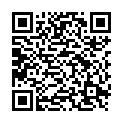|
|
|
| Module code: MFSTM-430 |
|
|
2V (2 hours per week) |
|
2 |
| Semester: 4 |
| Mandatory course: yes |
Language of instruction:
German |
Assessment:
Term paper with presentation (Can be repeated semesterly)
A presentation must be given on the final thesis (approx. 20 minutes)
[updated 20.01.2020]
|
MFSTM-430 (P440-0010) Leisure, Sports, Tourism Management, Master, ASPO 01.04.2017
, semester 4, mandatory course
|
30 class hours (= 22.5 clock hours) over a 15-week period.
The total student study time is 60 hours (equivalent to 2 ECTS credits).
There are therefore 37.5 hours available for class preparation and follow-up work and exam preparation.
|
Recommended prerequisites (modules):
None.
|
Recommended as prerequisite for:
|
Module coordinator:
Prof. Dr. Kerstin Heuwinkel |
Lecturer:
Dozierende des Studiengangs
[updated 21.12.2023]
|
Learning outcomes:
After successfully completing this module, students will be able to _
_ present the methods used for and the core contents of their thesis in a clear and understandable manner within a given time frame,
_ integrate their own work into existing knowledge,
_ combine their findings from theory and practice in a solution-oriented way,
_ engage in a scientific discussion with a critical audience,
_ critically question their own approaches and explain the limits of their own work,
_ cultivate social interaction within a group and hold constructive discussions,
_ apply the theoretical, methodological and argumentative skills acquired during their studies,
_ analyze complex issues (networked thinking) and describe and evaluate them appropriately using the correct scientific terminology (complexity reduction and pyramid principle),
_ develop, present and supply recommendations for action, suggestions for improvement and practicable solutions,
_ be able to scientifically substantiate and formulate their research findings in writing and document key results using modern presentation techniques, as well as present them to the group (and third parties, if necessary).
_ The colloquium essentially consists of 2 parts. The first part consists of information on working scientifically. This is usually covered by the School of Business before the 4th semester. The second part (presentation on the final thesis) is the examination for the colloquium and takes place in the form of a presentation. The presentation usually takes place at the end of the 4th semester.
[updated 20.01.2020]
|
Module content:
The purpose of the colloquium is to support students in the preparation of their Master´s thesis in the 4th semester. The colloquium takes place in the form of a block seminar where students are given the opportunity to present and discuss problems encountered while working on their thesis, as well as their approaches and solutions to those problems and the limits of their thesis to other students and their professor.
In addition, they will be expected to give an overview of the professional experiences they gained from their application-oriented research project. The exchange of experiences between students and the feedback between the students and faculty are of particular importance here.
_ The colloquium will be conducted by a professor or lecturer with the corresponding examination mandate at the request of the examination board.
_ Presentation on final thesis
[updated 20.01.2020]
|
Teaching methods/Media:
Interactive course with intensive student participation, partner and group work, use of video and camera technology.
_ Scientific colloquium
_ Oral presentation
_ Expert discussions
[updated 20.01.2020]
|
Recommended or required reading:
_ Depends on the respective topic
_ Information on introductory literature can be found in the respective module description under "Recommended prerequisites"
_ Hungenberg, H., Problemlösung und Kommunikation, München, latest edition
_ Theisen, M.R., Wissenschaftliches Arbeiten, Verlag Vahlen, München, latest edition
_ Franz, Susanne, Powerpoint, Verlag Markt und Technik , München, latest edition
_ Guidelines for writing academic papers at the Faculty of Economics and Business Administration
_ Specialist literature on scientific work, e.g. Kornmeier, Martin, Wissenschaftstheorie und wissenschaftliches Arbeiten - Eine Einführung für Wirtschaftswissenschaftler, 2007
_ Minto, B., Das Pyramiden-Prinzip _ Logisches Denken und Formulieren, Econ, Düsseldorf, 1993 (Urheberin und Ex-McKinsey)
[updated 20.01.2020]
|


